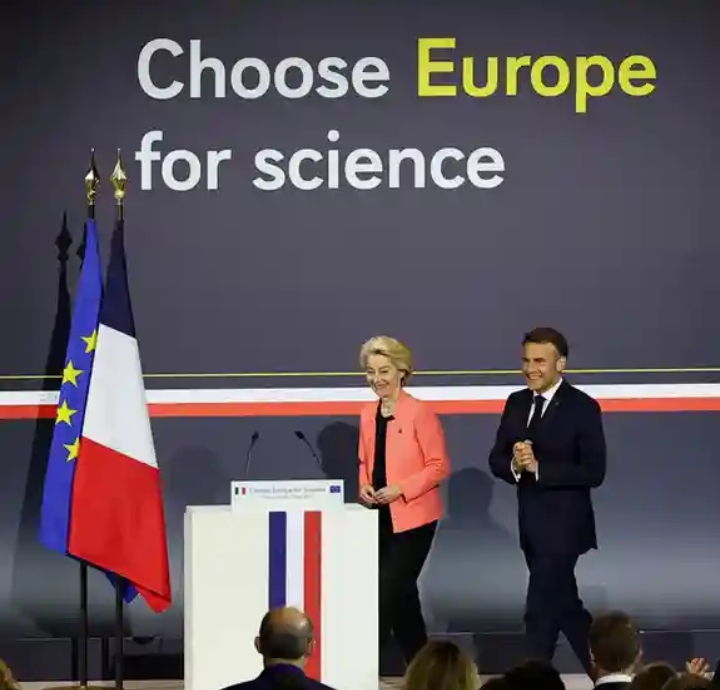Europe pledges €500M to attract U.S. scientists amid American research funding cuts under Trump.
EU Commits €500 Million to Attract Scientists as U.S. Slashes Research Funding


On Monday, European Commission President Ursula von der Leyen announced a commitment of €500 million ($566 million) in research funding, aimed at attracting scientists to relocate to Europe.
This initiative emerges as researchers in the United States face funding challenges under the administration of President Donald Trump. A number of EU member states have already expressed their intention to welcome disillusioned academics seeking better opportunities.
“We want scientists, researchers, academics, and highly skilled workers to choose Europe,” von der Leyen declared at the “Choose Europe for Science” conference held at Sorbonne University in Paris.
She emphasized that “Europe has everything that is needed for science to thrive. We have the stable and sustained investment. We have the infrastructure. We have the commitment to open and collaborative research.”
Von der Leyen explained that the new funding package, covering the years 2025 to 2027, is designed “to make Europe a magnet for researchers.”
Universities and research institutions in the United States have been under increasing political and financial strain during Trump’s presidency, facing threats of significant federal funding reductions.
Though she did not refer to the Trump administration directly, von der Leyen remarked that the erosion of free and open research represented “a gigantic miscalculation.”
She invoked the story of Marie Curie, the Sorbonne’s celebrated physicist and chemist, who was born in Poland—then under Russian rule—but moved to France to study and build her scientific career. Curie became the first woman to receive a Nobel Prize in 1903 for physics and later won another in 1911 for chemistry, remaining the only person to have received Nobel Prizes in two distinct scientific fields.
French President Emmanuel Macron, also present at the event, criticized the science policies under President Trump, who has accused American elite universities of advancing a left-wing ideology and tolerating antisemitism on campuses.
“Who could have imagined that this great global democracy, whose economic strength relies so deeply on free science, would make such an error?” Macron said.
He added, “We reject any form of diktat whereby a government decides what may or may not be researched.”
Research programs in the United States are facing the threat of closure, tens of thousands of federal employees have already been dismissed, and international students express growing fears of deportation due to their political beliefs.
Macron had previously urged foreign researchers, particularly Americans, to “choose France” as a destination for academic and scientific work.
Last month, the French president introduced a new funding initiative designed to support universities and research institutions in covering the expenses of recruiting international scientists.
In March, Aix Marseille University in southern France launched a “Safe Place for Science” program, offering refuge and opportunities to American scientists affected by funding cuts.
Earlier in February 2025, Patrick Cramer, president of Germany’s Max Planck Society, announced that applications from the United States had at least doubled, and in some cases even tripled.
Meanwhile, academic institutions in Denmark, Norway, and Sweden have also launched clear initiatives to draw scientific talent from the U.S.

 বাংলা
বাংলা  Spanish
Spanish  Arabic
Arabic  French
French  Chinese
Chinese 
